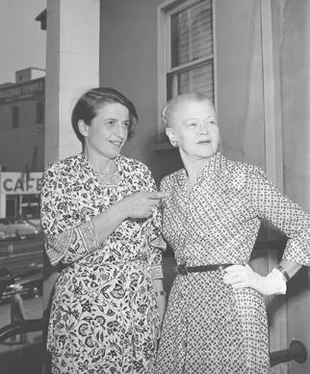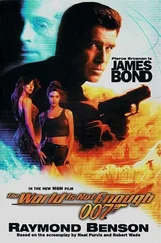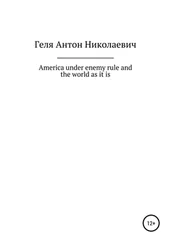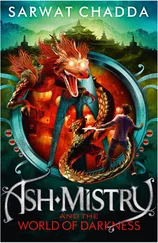Anne Heller - Ayn Rand and the World She Made
Здесь есть возможность читать онлайн «Anne Heller - Ayn Rand and the World She Made» весь текст электронной книги совершенно бесплатно (целиком полную версию без сокращений). В некоторых случаях можно слушать аудио, скачать через торрент в формате fb2 и присутствует краткое содержание. Жанр: Биографии и Мемуары, на английском языке. Описание произведения, (предисловие) а так же отзывы посетителей доступны на портале библиотеки ЛибКат.
- Название:Ayn Rand and the World She Made
- Автор:
- Жанр:
- Год:неизвестен
- ISBN:нет данных
- Рейтинг книги:5 / 5. Голосов: 1
-
Избранное:Добавить в избранное
- Отзывы:
-
Ваша оценка:
- 100
- 1
- 2
- 3
- 4
- 5
Ayn Rand and the World She Made: краткое содержание, описание и аннотация
Предлагаем к чтению аннотацию, описание, краткое содержание или предисловие (зависит от того, что написал сам автор книги «Ayn Rand and the World She Made»). Если вы не нашли необходимую информацию о книге — напишите в комментариях, мы постараемся отыскать её.
Ayn Rand and the World She Made — читать онлайн бесплатно полную книгу (весь текст) целиком
Ниже представлен текст книги, разбитый по страницам. Система сохранения места последней прочитанной страницы, позволяет с удобством читать онлайн бесплатно книгу «Ayn Rand and the World She Made», без необходимости каждый раз заново искать на чём Вы остановились. Поставьте закладку, и сможете в любой момент перейти на страницу, на которой закончили чтение.
Интервал:
Закладка:
Though political change was in the air, it came as a shock to almost everyone when, during the final week of February 1917, history galloped past its gatekeepers to a point of no return.
The February 1917, or “liberal,” Russian Revolution began with a shortage of bread. On February 23, several St. Petersburg bakeries ran out of flour and closed their doors. That afternoon a planned International Women’s Day march turned into a bread riot. The next day, male workers left their factories and joined the women in the streets. Before long, one hundred thousand hungry, war-weary workers, students, and soldiers collected at points outside the city and marched down Nevsky Prospekt, recklessly shouting “Down with the czar!” As in 1905, the Rosenbaums heard the insurrection from their windows; Rand later said that she and her sisters stood on their apartment balcony and watched as a line of mounted Cossacks fired warning shots above the crowd. Unlike in 1905, however, the czar didn’t react quickly or decisively. By February 28, his St. Petersburg garrison, haphazardly led and sympathizing with the protesters, turned their guns on their commanders. The next day, thousands of munitions workers armed themselves for combat. That’s when the Duma demanded, and got, the abdication of Czar Nicholas II. On March 3, Nicholas’s younger brother Mikhail ceded his right of succession, quietly signing an abdication letter written by Olga’s father. The Duma immediately installed a liberal Provisional Government, with V. D. Nabokov as its chancellor and Aleksandr Kerensky as its minister of justice, soon to be prime minister. For a brief period, the dashing and rhetorically gifted Kerensky became Ayn Rand’s second hero, after Cyrus.
All Russia cheered the fall of the czar. In the streets, shops, and cafés of St. Petersburg, people spoke jubilantly of coming political freedoms, economic revival, and an end to the war. Much later, Rand would remember this as a period of unparalleled excitement, hope, and happiness, both for her and for the country. It was the only time in her life, she said, when she was “synchronized with history.”
A few people, including the popular writer Maxim Gorky, took a dimmer view. He predicted that the “dark instincts” of the Russian people would “flare up and fume, poisoning us with anger, hate, and revenge. They will kill one another, unable to suppress their own animal stupidity.” He was prescient, as the nation would soon learn.
Another skeptic emerged during the national celebration: Zinovy Rosenbaum. Beginning in February 1917, Rand’s father quietly began stockpiling cash and family jewelry against the day when the revolution would turn ugly. He didn’t have long to wait. On the heels of the czar’s defeat came the Bolshevik leader Vladimir Lenin, an archenemy of the propertied classes and of all the privileges that come with money. He, too, had a utopian plan: to marshal the forces of poverty, envy, and anger, built up over hundreds of years of economic inequality, in pursuit of a classless society. In April, he arrived at the Finland Station from European exile, red banners flying from his train.
In the summer of 1917, the Rosenbaums and their extended family took a final carefree summer vacation in Terijoki, today called Zelenogorsk, a leafy resort town on the Russian-Finnish coast about thirty miles from St. Petersburg. This was one of the happiest summers of Rand’s childhood. For one thing, she was reading Ivanhoe , Sir Walter Scott’s historical romance set among twelfth-century English knights and ladies. The book follows the adventures of the gallant young Ivanhoe, home from the Crusades and in love with the mild-mannered Lady Rowena. Ivanhoe, in turn, is loved by Rebecca, a gifted Jewish healer whose father, the wealthy merchant Isaac, sponsors Ivanhoe’s chivalric exploits.
Amid a tangle of plots and subplots, Scott proposes that capitalism (as represented by Isaac) and character (which charming Rebecca has in spades) will be the defining values of the coming modern world. But the heraldic universe of I vanhoe is not yet ready for modernity, and the hero finally spurns the beautiful Rebecca in favor of Rowena. Rand never remarked on this turn of the plot in a favorite novel, but the rejection of a superior girl for an insipid one and the second-class status of Jews were all too familiar to her. Robin Hood also makes an appearance in the book as the altruistic spokesman for popular resentment against the Norman nobles. This was probably Rand’s first encounter with the legendary English outlaw who takes from the rich and gives to the poor—which also happened to be the stated objective of the Bolsheviks. For Rand, Robin Hood immediately became a villain, a symbol of the cowardly, destructive idea that “need, not achievement, is the source of rights,” as she wrote in 1964. Readers of Atlas Shrugged remember the character of Ragnar Danneskjöld, an anti-Robin Hood who takes back from the poor and gives back to the rich.
When Rand returned to school that fall, the city’s mood had darkened. The Provisional Government’s first official act had been to confer equal rights on Jews, an unpopular move with most Russians. While the government also rapidly granted basic freedoms of speech, press, and assembly to the people at large, the lower classes were unmoved by abstract freedoms; they wanted bread, fuel, land, and jobs with a living wage. These were not forthcoming. In fact, shortages were such that the government began to ration bread.
Equally important, Kerensky didn’t end the war; through a blizzard of speeches, he tried to rally the army for a push to victory. This shifted popular sentiment leftward. In legislative elections in September, the Bolshevik candidates, running on a promise to end the war, nationalize factories, and confiscate landowners’ fields, made gains. Unfortunately, this didn’t alarm Kerensky. In early October, when V. D. Nabokov asked him whether an armed Bolshevik attack on the new government was now possible, the prime minister answered that he hoped so; he was sure his troops could defeat the radicals once and for all.
Then, to worldwide dismay, on October 25, 1917, Lenin and his Bolshevik followers struck. Simply by occupying a few key buildings, cutting telephone lines, and winning over a handful of strategically placed soldiers, they gained control of the capital and overthrew Russia’s fragile republican government. A bloody civil war for command of the rest of the empire followed, but this one-day coup was the unspectacular beginning of the dictatorship of the proletariat, whose ensuing brutalities Rand would one day brilliantly detail in fictional form. Kerensky, who fled the country, spent the rest of his life explaining why he shouldn’t be blamed for the failure of his nation’s single great moment of political opportunity. Russian parliamentary democracy had lasted exactly eight months.
Rand kept a diary during this period, where she wrote down her ideals and, on her thirteenth birthday, noted her decision to be an atheist. Later, she remembered her reasoning this way: Since no one had ever been able to prove that God exists, God was obviously an invention, and even if God did exist and was perfect, as reputed, then man would necessarily have to be imperfect and “low” by comparison, an idea she said she rejected then and never reconsidered. She may have been more deeply influenced than she remembered by anger at the seeming lack of justice, divine or otherwise, in the events taking place around her.
A few years after starting her diary she burned it; by then, keeping a written record of ideals that clashed with the official Bolshevik party line was perilous, even for a child. Much later she said that she used this diary to work out her views on popular ideas and maxims of the time, such as that people should “live for the state” or “live for others,” specifically for the poor. It will come as no surprise to Rand’s readers that, even then, she didn’t like the sound of living for someone else. She remembered picturing her beloved heroes—Cyrus, Thunder, perhaps Kerensky—being forced to set aside their noble ideals and dashing temperaments to serve and obey proletarian “non-entities,” as she called them, simply because those nonentities were illiterate and poor. Never! People have a right to live for themselves, she decided, transforming her native sense of entitlement into an integrated “sense of life.” The unique rights of individuals, especially gifted individuals, would become a fundamental building block of—and point of contention about—her novels of ideas, starting with We the Living . Later, she would often say, “Whoever tells you to exist for the state is, or wants to be, the state.”
Читать дальшеИнтервал:
Закладка:
Похожие книги на «Ayn Rand and the World She Made»
Представляем Вашему вниманию похожие книги на «Ayn Rand and the World She Made» списком для выбора. Мы отобрали схожую по названию и смыслу литературу в надежде предоставить читателям больше вариантов отыскать новые, интересные, ещё непрочитанные произведения.
Обсуждение, отзывы о книге «Ayn Rand and the World She Made» и просто собственные мнения читателей. Оставьте ваши комментарии, напишите, что Вы думаете о произведении, его смысле или главных героях. Укажите что конкретно понравилось, а что нет, и почему Вы так считаете.












